Loading...

EvergreenEvergreenClydeOH
Evergreen
200%
Capture Rate Increase
Clyde, OH
Evergreen, with a location in Clyde, Ohio, is among the nation’s largest recyclers of polyethylene terephthalate (PET) and producers of recycled PET (rPET). The company supplies food and non-food grade rPET pellets and flake to many top global brands, helping customers increase recycled content in their plastic packaging; achieve sustainability goals; and more fully participate in environmental, social, and governance programs.
Challenges:
Labor Shortages Confine Quality, Productivity
Like most recyclers, Evergreen had relied on manual sorting since its establishment in 1998. But as volumes have grown—Evergreen collects and processes more than two billion post-consumer PET bottles annually—manual sorting has become increasingly less feasible given the difficulty of staffing these jobs and the arduous nature of the work.
“Sorting is the most tedious job we have at Evergreen. The shifts are 12 hours long, and the work is repetitive and mundane,” said Mark Passarell, plant superintendent. “Our sorting staff was able to pick up to 30 to 40 bottles per minute, but it was a hard pace to maintain, and we had a hard time filling these jobs.”
In addition to seeking a labor solution that allowed Evergreen not only to fully staff but to reassign employees to more desirable jobs within the facility, consistency was another challenge facing the operation. Evergreen needed to ensure it was producing high-quality bales to meet the rigorous standards for the food-grade flake it provides to packaging producers.
The onset of COVID-19 in early 2020 exacerbated existing challenges around staffing and consistency and added health, safety, and more to the business priorities Evergreen had to manage. The pandemic took hold around the same time Evergreen’s former parent company, Greenbridge, began exploring a possible expansion of its rPET manufacturing capacity.
“AMP’s team has been extremely responsive, available anytime we requested support. The team has gone out of its way to follow up and check in without being prompted.”
Solution:
Turnkey Systems with Close Collaboration from Testing to Installation and Beyond
Evergreen embarked on that major expansion project in the first half of 2021 designed to double its annual production capacity of 40 million pounds of food-grade rPET pellet to 80 million pounds. In anticipation, Greenbridge began investigating the addition of robotics and different sorting technologies at Evergreen in early 2020 to expand its recycling capacity.
“AMP Robotics had a history on the front-end sorting bottles from single-stream recycling. What we were asking them to do was more specific: pull clear PET bottles from a mixed stream of bottles. That’s a more challenging process,” said Passarell.
AMP proved itself up to Evergreen’s challenge by applying its experience in artificial intelligence to teach its robots to recognize clear bottles from green or opaque bottles. During the development process, a team from Evergreen visited AMP’s facility to conduct preliminary testing, including running an actual material stream from Evergreen through AMP’s system with results that led to pre-installation adjustments. Following evaluation and testing, Evergreen determined AMP had the best technology and support.
AMP installed six custom-built AMP Delta units at Evergreen’s Clyde facility in November 2020—five in the final sorting area and the sixth on a residue line as a last-chance opportunity to pick bottles for recycling. Being a 24/7 facility, Evergreen lacked regular or weekend downtime to schedule the installation. But working closely together, the companies planned the installation over a three-day period, with the systems fitting as anticipated and functioning well at startup. Since then, AMP has met with Evergreen on a weekly basis to continue to make enhancements to the robots.
Evergreen was able to incorporate AMP’s technology into its operation without the addition of special maintenance staff; AMP trained process technicians at the facility that service optical sorters and other equipment to manage the robots as well. Maintenance and downtime have been limited because operators and team leaders have learned to clean and periodically change the suction cups and screens underneath them. And AMP’s service hasn’t wavered since installation.
Greg Johnson, chief operating officer for Evergreen, added, “AMP’s team has been extremely responsive, available anytime we requested support. The team has gone out of its way to follow up and check in without being prompted.”
“The net result is we’re getting more PET bottle picks—about twice as many—from the material stream. We want to recover all we can, and with AMP’s technology, we are.”
Results:
Capture Rates Increase 200% with Higher Quality to Support Expansion
With robots focused on refining the quality of material, separating plastics more precisely by color, Evergreen has seen a notable improvement in purity along with pick rates of up to 120 bottles per minute—an increase of up to 200%. The robots are removing up to 90% of contamination, on average, across Evergreen’s different lines.
Moreover, the addition of AI and robotics technology has brought consistency to the operation by helping an area in the facility that was always challenging to staff run autonomously, allowing Evergreen to focus on and drive improvements in other areas of the operation. The robots offer the ability to adapt very quickly to changes in the material stream, offering an attractive alternative to time-consuming training with human sorters to absorb changes. Plus, after the robots were installed, Evergreen cross-trained its team members and moved some to more technical or high-skilled roles within the plant.
Passarell says the robots are revolutionizing Evergreen’s recycling process by making bottle sorting faster and more accurate. “The net result is we’re getting more PET bottle picks—up to three times as many—from the material stream. We want to recover all we can, and with AMP’s technology, we are.”
Evergreen is not only recovering more bottles, but at a consistently higher quality. With AMP’s technology, Evergreen is combining greater productivity with reduced contamination, generating more high-quality recycled content to meet its bottle-to-bottle recycling goals.
The results have been compelling enough that Evergreen decided to move forward with six additional AMP Delta robots for a PET recycling facility it acquired in Riverside, California, and another three robots for an acquired facility in Albany, New York. With 15 systems across three locations, Evergreen is the largest operator of AI-guided robots with a North American reclaimer.
Johnson concludes, “We’ve been very pleased with our partnership with AMP, and plan on continuing to work together as we identify future needs for AI-powered sorting.”
Results
Capture Rates Increase 200% with Higher Quality To Support Expansion
With robots focused on refining the quality of material, separating plastics more precisely by color, Evergreen has seen a notable improvement in purity. The robots are removing up to 90% of contamination, on average, across Evergreen’s different lines.
Moreover, the addition of AI and robotics technology has brought consistency to the operation by helping an area in the facility that was always challenging to staff run autonomously, allowing Evergreen to focus on and drive improvements in other areas of the operation. The robots offer the ability to adapt very quickly to changes in the material stream, offering an attractive alternative to time-consuming training with human sorters to absorb changes. Plus, after the robots were installed, Evergreen cross-trained its team members and moved some to more technical or high-skilled roles within the plant.

Inside Evergreen
Put the power of AMP Smart Sortation™ to work for you.




